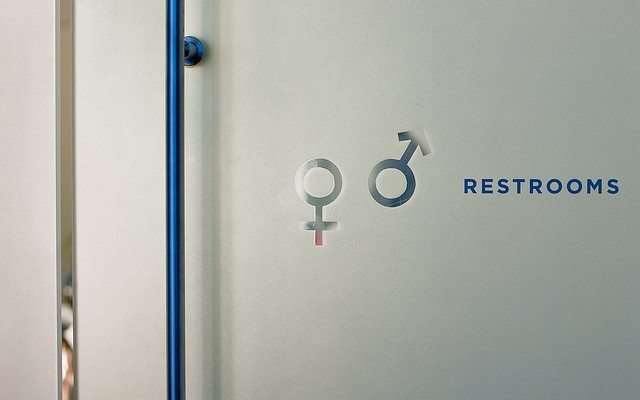
News
The Significance of Restrooms: Transgender Rights Upheld in Maine
Thursday, January 30, 2014 saw a huge victory for the rights of transgender students. The Supreme Judicial Court of Maine, overturning a decision made by a lower court, held that being transgender does not inhibit the right of equal access to restrooms in public buildings.
Nicole Maines’ rights were violated in the fifth grade, when she was told by school administrators that she must use the staff bathroom instead of the girl’s room at Asa Adams School in Orono, Maine. The case was first brought to Penobscot County Superior Court. Nicole was represented by lawyers of the Gay & Lesbian Advocates & Defenders, who argued that the student had been deprived of her rights under the Maine Human Rights Act, which requires equal access of all people, regardless of gender, race, sexual orientation and other identifications, of public accommodations. However, the court held for the school district, claiming that a 1983 law that mandated schools to have separate bathrooms according to sex outweighed the provision in the Human Rights Act.
The state supreme court noted that the old law really was meant to provide access for all people, regardless of gender, to sanitary facilities in public buildings, including schools. With this interpretation, the court found there was a violation of the Human Rights Act: by prohibiting Nicole from using a female restroom though she identified as female, the school district discriminated against Nicole because of her gender identity.
Other cases around the country hint at further progress on the issue of transgender bathroom use. Two individuals in Iowa, both of whom were born as males and identify as females, won the right to use women’s public restrooms. In June, in Colorado, six year old Coy Mathis’ family won their case against the Fountain-Fort Carson School District that had barred Coy’s use of a female restroom. Now, the Maines case can be added to the list of successes in furthering the rights and acceptance of transgender individuals.
This court decision, the first to invoke an amendment to Maine’s Human Rights Act that protected transgender persons in schools, will have great importance for transgender students across the country. Nicole Maines is certainly not the only individual that has faced hardship in schools due to being transgender. Adolescence can be a difficult time for any pupil, and the problem of bullying has grown in visibility throughout the country. Students like Nicole need the support of their teachers and school officials in the face of adversity, and singling Nicole out as different by requiring her to use a unisex bathroom hardly helps. Children don’t just learn from their teachers in the classroom; they set an example for certain behavior. If school officials, through their actions, show students of transgender identity to be different than others, what’s to stop other students of thinking the same?
The seemingly minor issue of which bathroom to use can mean a lot to a transgender individual. The majority opinion of the court addressed this when it stated, “it has been clearly established that a student’s psychological well-being and educational success depend upon being permitted to use the communal bathroom consistent with her gender identity.” The choice of what bathroom to use reaffirms a person’s notion of their sex. Denying someone the ability to use a bathroom associated with the gender they identify with in effect denies acceptance of their chosen gender.
Moreover, requiring a transgender person to use a separate unisex bathroom not only denies him or her the recognition of their sex identity but makes their private issue into a public one. For instance, Nicole Maines was given access to the staff bathroom but was escorted by a teacher whenever she had to use the facility. This policy was extremely unfair to Nicole as it clearly made visible the fact that she was transgender, something that, like the choices and beliefs of other individuals, is a personal matter. The school district directly interfered with Nicole’s freedom of expression in disallowing her use of a female restroom, though despite the genes she was given, Nicole is a female. The treatment that Nicole Maines was given in her public school should not have to be experienced by any other transgender individual in the future, and her case’s outcome displays progress in how schools can accommodate the needs of all of their students.
It is hopeful to know that, in fighting the school’s policy, Nicole did not only have the support of her family and lawyers, but many of her fellow classmates. Students reportedly cheered in Nicole’s high school when the verdict was declared. Teenagers evidently understood that a policy was discriminatory when adult school officials did not. Activists like Nicole and her like-minded family and peers give hope that similar discriminatory policies across the country may be reversed in the coming years.
[NPR] [Press Herald] [Maine Legislature] [Daily Mail] [USA Today] [CNN]
—
Sarah Helden (@shelden430)
Featured image courtesy of [Susan Sermoneta via Flickr]








Comments